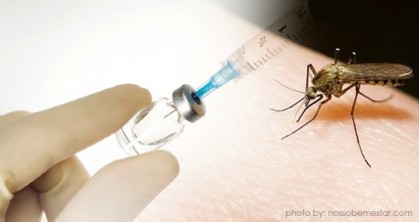Sanofi Pasteur, the vaccines division of Sanofi, announced today that new data analysis published in the New England Journal of Medicine (NEJM) provide a comprehensive picture of the potential public health impact of vaccinating endemic populations from pre-adolescence to adulthood against dengue. Not only is this the largest population at risk of dengue globally, but individuals 9 years of age and older also represent a highly mobile group capable of spreading disease more broadly during outbreaks and also contributing substantially to the economic burden of dengue, for example in number of lost school and work days due to the disease.
The NEJM article reported results from a new pooled efficacy analysis of individuals 9 years of age and older at vaccination from the two Phase III studies of Sanofi Pasteur’s dengue vaccine. The new analysis documented that the vaccine protects two-thirds of these individuals (66%) against dengue, providing even greater protection against two clinically relevant manifestations of dengue, namely severe dengue (93%) and prevention of hospitalizations due to dengue (80%) that account for the greatest human and economic burden of dengue in endemic countries. In addition, the dengue vaccine candidate protected volunteers 9 years of age and older who were previously exposed to dengue (82%), as well as those who were naïve to dengue (52.5%) prior to vaccination.
The clinical development program for the vaccine candidate includes studies with four-year, long-term follow-up phases, in line with WHO guidelines for dengue vaccine development. Results from first 25 months of the two Phase III efficacy studies were published in 2014.4,5 Interim data from the third year of these studies and interim data from the third and fourth years of the Phase II extension study in Thailand published in the new NEJM article confirm the continuing reduction of hospitalized dengue in the vaccinated population 9 years of age and older.
The third-year interim data from the Asian Phase III study identified the need for further longterm surveillance in children under 9 years of age to assess the impact of the dengue vaccine candidate in these younger children.
Dr. Maria Rosario Capeding from the Research Institute for Tropical Medicine in the Philippines, who is a lead author on the NEJM article, points out the potential public health benefit of having a first dengue vaccine available to protect individuals 9 years of age and older. “This large, at-risk population includes the most dynamic members of the community who have the potential to spread disease widely and also contribute most to dengue’s heavy societal impact in terms of school absences and lost work productivity. Certainly, individuals 9 years of age and older represent a compelling target group for an immunization program against dengue aimed at significantly reducing overall disease burden.”
Dengue is the world’s fastest growing vector-borne disease, endemic in over 100 countries where almost half the world’s population resides. The WHO has set objectives to reduce mortality due to dengue by 50% and morbidity by 25% by 2020. Introduction of an effective and safe dengue vaccine as an integral part of dengue prevention efforts will be critical to achieving this goal.
Based on the totality of the safety and efficacy data for its dengue vaccine candidate, Sanofi Pasteur has decided to recommend a targeted age indication for the vaccine of 9 years of age and older in endemic countries, where the combination of disease burden and the vaccine’s proven impact profile in this age group point to the greatest potential for reduction of dengue disease burden in these countries.
The above article is based on a press release.



No comments:
Post a Comment